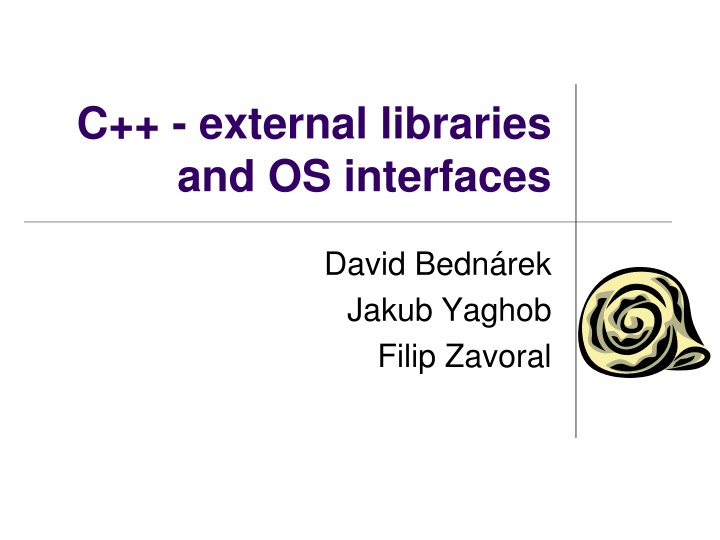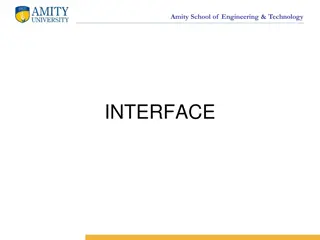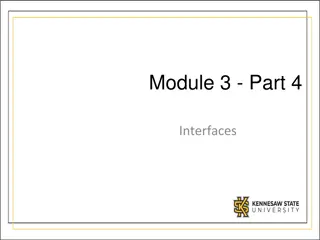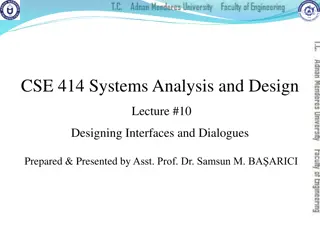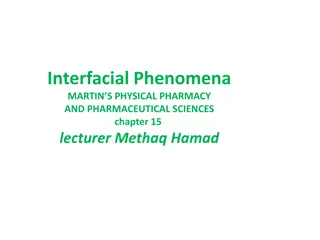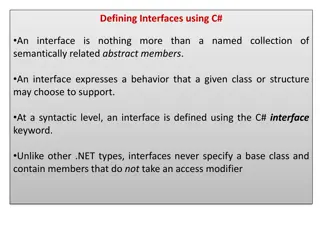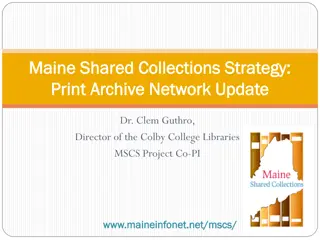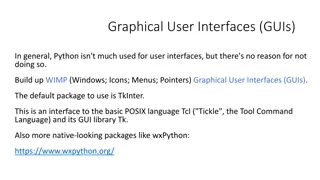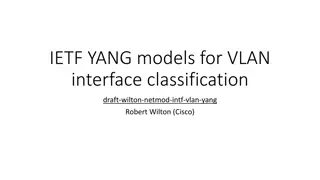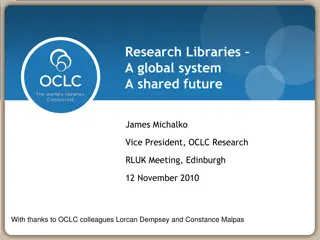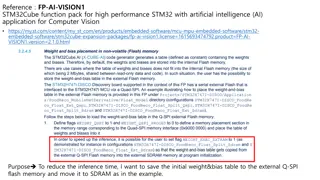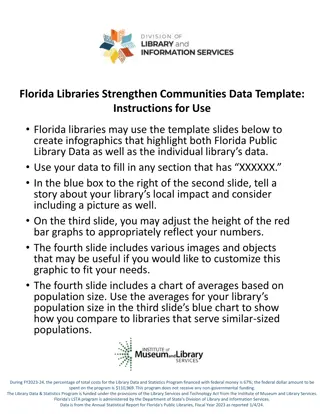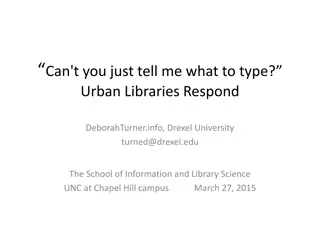C++ - external libraries and OS interfaces
This content provides an in-depth exploration of database client connection in C++, covering topics such as utilizing external libraries, interfacing with operating systems, and working with various database client interfaces. It delves into concepts like native clients, API standards, program entities, memory management, session establishment, transaction handling, and result set manipulation within a database environment.
Download Presentation

Please find below an Image/Link to download the presentation.
The content on the website is provided AS IS for your information and personal use only. It may not be sold, licensed, or shared on other websites without obtaining consent from the author.If you encounter any issues during the download, it is possible that the publisher has removed the file from their server.
You are allowed to download the files provided on this website for personal or commercial use, subject to the condition that they are used lawfully. All files are the property of their respective owners.
The content on the website is provided AS IS for your information and personal use only. It may not be sold, licensed, or shared on other websites without obtaining consent from the author.
E N D
Presentation Transcript
C++ - external libraries and OS interfaces David Bedn rek Jakub Yaghob Filip Zavoral
Database Client connection Aplikace DB DB.LIB
Database native client Oracle OCI MS Server ODBC, OLE DB Sybase Open client PostgreSQL Proprietary MySQL Proprietary
Database interface selection Native client Faster Specific features available Not portable (sometimes) Bound to specific DB General client (ODBC, OLE DB) Implemented using native clients Slower due to added layer Specific features not accessible Unbound to specific DB?
Database API ISO 9075:2008 Almost all interfaces conform Excluding MySQL Defines a program entities hierarchy Defines an interface for manipulating with program entities
Database program entities Environment Global setting for client library in an application Defines memory-management Session Connection to one server Properties session, user Derived from the environment Statement State space for one query Prepared statement Parameter binding Static/dynamic, input/output Derived from the session
Database program entities Result-set Container of results Derived from the statement Result Query result Data binding Static/dynamic Derived from the result-set Transaction Derived from the session
Database program entities Application Environment Session (User/Pwd/Server1) Transaction Statement Result-set Result Session User Pwd Server2 State- ment R2 DB1 DB2
Database example environment e; CreateEnvironment(e); session ses; CreateSession(ses, e); ConnectSession(ses, user , pwd , srv ); transaction t; CreateTransaction(t, ses); BeginTransaction(t); statement stm; CreateStatement(stm, ses); int i, j; BindParameter(stm, q , i, IN, C_INT, SQL_DEC); result_set rs = ExecuteStatement(stm, select * from t where c=:q ); result r = rs.first(); BindColumn(r, 1, j, C_INT, SQL_DEC); while(Fetch(r)) { } DestroyResult(r);DestroyRS(rs); CommitTransaction(t); DestroyStatement(stm); DestroyTransaction(t); CloseSession(ses); DestroySession(ses); DestroyEnvironment(e);
Database C++ Something like SQLpp Dead project auto x = select(p.id, p.name, f.id.as(id2)) .from(p, f) .where(p.name=any(select(f.name).from(f))) .group_by(f.name) .order_by(p.name.asc()); for(const auto & row : x) { int id = row.id; string name = row.name; }
Network C++23?? BSD sockets Winsock 2 Socket Abstract endpoint for network communication Bind to different protocols IPv4, IPv6 Bind to different kind of communication Stream, datagram, raw Bind to transportation protocol TCP, UDP
Network TCP client SOCKET sock = socket(INET, STREAM, TCP); struct sockaddr_in soain; soain.sin_family = INET; getaddrinfo( www.nic.cz , SRV_PORT, 0, &soain.sin_addr); connect(sock, soain); send(sock, buf, len); recv(sock, buf, len); shutdown(sock); close(sock);
Network TCP server SOCKET listensock = socket(INET, STREAM, TCP); struct sockaddr_in soain; soain.sin_family = INET; soain.sin_port = SRV_PORT; soian.sin_addr = ANY; bind(listensock, soain); listen(listensock, queuedepth); for(;;) { SOCKET sock = accept(listensock); recv(sock, buf, len); send(sock, buf, len); shutdown(sock); close(sock); } shutdown(listensock); close(listensock); // blocks
Network UDP client SOCKET sock = socket(INET, DGRAM, UDP); struct sockaddr_in soain; soain.sin_family = INET; getaddrinfo( www.nic.cz , SRV_PORT, 0, &soain.sin_addr); sendto(sock, buf, len, &soain); recvfrom(sock, buf, len, &soain); close(sock);
Network UDP server SOCKET sock = socket(INET, STREAM, TCP); struct sockaddr_in soain; soain.sin_family = INET; soain.sin_port = SRV_PORT; soian.sin_addr = ANY; bind(sock, soain); for(;;) { struct sockaddr_in soain_cli; int len = recvfrom(sock, buf, maxlen, &soain_cli); sendto(sock, buf, len, &soain_cli); } close(sock);
Network remaining functions select Wait for finished operations on sockets getaddrinfo General translation from node name to a binary representation getnameinfo General translation from binary representation to a node name and service name htons, htonl, ntohs, ntohl Translation from host byte-order to network byte- order and vice versa
Asynchronous I/O Execute a file operation and continue in a work A new entity created, which can be questioned for operation status or the application can wait for it What about coroutines? Application OS async_read start read is_ready read finished
Asynchronous I/O demo Windows HANDLE f = CreateFile( f.txt , FILE_READ_DATA, FILE_SHARE_READ, 0, OPEN_EXISTING, FILE_FLAG_RANDOM_ACCESS | FILE_FLAG_OVERLAPPED, 0); OVERLAPPED o; memset(&o, 0, sizeof(OVERLAPPED)); o.hEvent = CreateEvent(0, TRUE, FALSE, 0); o.Offset = offs; ReadFile(f, buf, sz, &rsz, &o); AIO int f = open( f.txt , O_RDONLY | O_LARGEFILE, rights); aiocb a; memset(&a, 0, sizeof(aiocb)); aiocb. aio_fildes = f; aiocb. aio_offset = offs; aiocb. aio_nbytes = sz; aiocb. aio_buf = buf; aiocb. aio_sigevent.sigev_notify = SIGEV_NONE; aio_read(&a); aio_suspend(&a, 1, 0); rsz = aio_return(&a); close(f); WaitForSingleObject(o.hEvent, INFINITE); CloseHandle(o.hEvent); CloseHandle(f);
Memory mapped files Mapping, unmapping files A file must be already opened Create, destroy window File VAS window
Memory mapped files Windows
Memory mapped files demo Windows HANDLE f = CreateFile( f.txt , FILE_READ_DATA, FILE_SHARE_READ, 0, OPEN_EXISTING, FILE_FLAG_RANDOM_ACCESS, 0); HANDLE m = CreateFileMapping(f, 0, PAGE_READONLY, 0, sz, 0); void *p = MapViewOfFileEx(m, FILE_MAP_READ, 0, offs, sz, hinta); POSIX int f = open( f.txt , O_RDONLY | O_LARGEFILE, rights); void *p = mmap(hinta, sz, PROT_READ, MAP_SHARED, f, offs); munmap(p, sz); close(f); UnmapViewOfFile(p); CloseHandle(m); CloseHandle(f);
Filesystem Open, close directory Some OS with name filtering Reading directory Getting name, attributes, size, rights, Create, remove directory Already in C++17
Shared memory Sharing memory among different processes Usually identified by a name Page granularity MASOS, SASOS Offsets VAS A VAS B FAS App B App A App A App B
Shared memory demo SASOS Windows client HANDLE shm = OpenFileMapping( FILE_MAP_WRITE|FILE_MAP_READ, FALSE, mymemory ); void *p = MapViewOfFileEx(shm, FILE_MAP_READ, 0, 0, sz, hinta); struct s { int n; int *ptr; }; for(int i=0;i<static_cast<s*>(p)->n;++i) cout << static_cast<s*>(p)->ptr[i]; UnmapViewOfFile(p); CloseHandle(shm); Windows server HANDLE shm = CreateFileMapping (INVALID_HANDLE_VALUE, 0, PAGE_READWRITE, 0, sz, mymemory ); void *p = MapViewOfFileEx(shm, FILE_MAP_WRITE, 0, 0, sz, hinta); struct s { int n; int *ptr; }; static_cast<s*>(p)->n = N; static_cast<s*>(p)->ptr = static_cast<char*>(p)+sizeof(s); for(int i=0;i<N;++i) static_cast<s*>(p)->ptr[i] = i; UnmapViewOfFile(p); CloseHandle(shm);
Shared memory demo MASOS Windows client HANDLE shm = OpenFileMapping( FILE_MAP_WRITE|FILE_MAP_READ, FALSE, mymemory ); void *p = MapViewOfFileEx(shm, FILE_MAP_READ, 0, 0, sz, hinta); struct s { int n; size_t offs; }; for(int i=0;i<static_cast<s*>(p)->n;++i) cout << static_cast<int*>(static_cast<char*>(p) +static_cast<s*>(p)->offs)[i]; UnmapViewOfFile(p); CloseHandle(shm); Windows server HANDLE shm = CreateFileMapping (INVALID_HANDLE_VALUE, 0, PAGE_READWRITE, 0, sz, mymemory ); void *p = MapViewOfFileEx(shm, FILE_MAP_WRITE, 0, 0, sz, hinta); struct s { int n; size_t offs; }; static_cast<s*>(p)->n = N; static_cast<s*>(p)->offs = sizeof(s); for(int i=0;i<N;++i) static_cast<int*>(static_cast<char*>(p) +static_cast<s*>(p)->offs)[i] = i; UnmapViewOfFile(p); CloseHandle(shm);
Shared memory demo POSIX client int shm = shm_open( mymemory , O_RDWR, rights); void *p = mmap(hinta, sz, PROT_READ, MAP_SHARED, shm, 0); struct s { int n; int *ptr; }; for(int i=0;i<static_cast<s*>(p)->n;++i) cout << static_cast<s*>(p)->ptr[i]; munmap(p, sz); close(shm); shm_unlink( mymemory ); POSIX server int shm = shm_open( mymemory , O_RDWR|O_CREAT|O_EXCL, rights); void *p = mmap(hinta, sz, PROT_READ|PROT_WRITE, MAP_SHARED, shm, 0); struct s { int n; int *ptr; }; static_cast<s*>(p)->n = N; static_cast<s*>(p)->ptr = static_cast<char*>(p)+sizeof(s); for(int i=0;i<N;++i) static_cast<s*>(p)->ptr[i] = i; munmap(p, sz); close(shm); shm_unlink( mymemory );
POSIX Portable Operating System Interface [for Unix] Existing native implementation for Win NT Single UNIX Specification IEEE standard API Shell Utility
POSIX versions POSIX.2 Shell and utility 1992 POSIX:2001 API, shell, utility POSIX:2004 Update and corrigendum POSIX:2008 API, shell, utility POSIX.1 API (includes ANSI C) 1988 POSIX.1b Real-time extension 1993 POSIX.1c Thread extension 1995
POSIX compatibility Full AIX, HP-UX, Solaris, Mac OS X, Partial FreeBSD, GNU/Linux, OpenSolaris, Windows Cygwin partial compatibility MS Windows Services for UNIX 3.5 full compatibility
Boost Portable C++ library Review process Source and testing ground for ISO Tightly coupled with ISO comittee Large set of supported OSs and compilers Very good library, sometimes too abstract
Boost containers Array Constant size array ISO C++ TR1/C++ 11 Bimap Two-sided map Circular buffer Graph Variant Secure union ISO C++17
Boost parallel programming support Interprocess Shared memory Memory mapped files Mutexes ISO C++ 11 MPI Thread ISO C++ 11
Boost I/O Asio Asynchronous I/O, executors, networking, Parts maybe in C++20? Format Enhanced formatting like printf Program options Command line parameters Serialization Data serialization for saving or marshalling
Boost mathematic and numeric Intervals Multi-array Random ISO C++ TR1/C++ 11
Boost generic programming and metaprogramming GIL Generic Image Library Static assert ISO C++ 11 Type traits ISO C++ TR1/C++ 11 MPL General framework for compile-time algorithms, sequences, and metafunctions
Boost strings Lexical cast Regex ISO C++ TR1/C++ 11 Spirit LL parser String algo Tokenizer Splitting a string to tokens
Boost unsorted Shared ptr ISO C++ TR1/C++ 11 Date time ISO C++ 11 Filesystem Paths, directory, files ISO C++17
